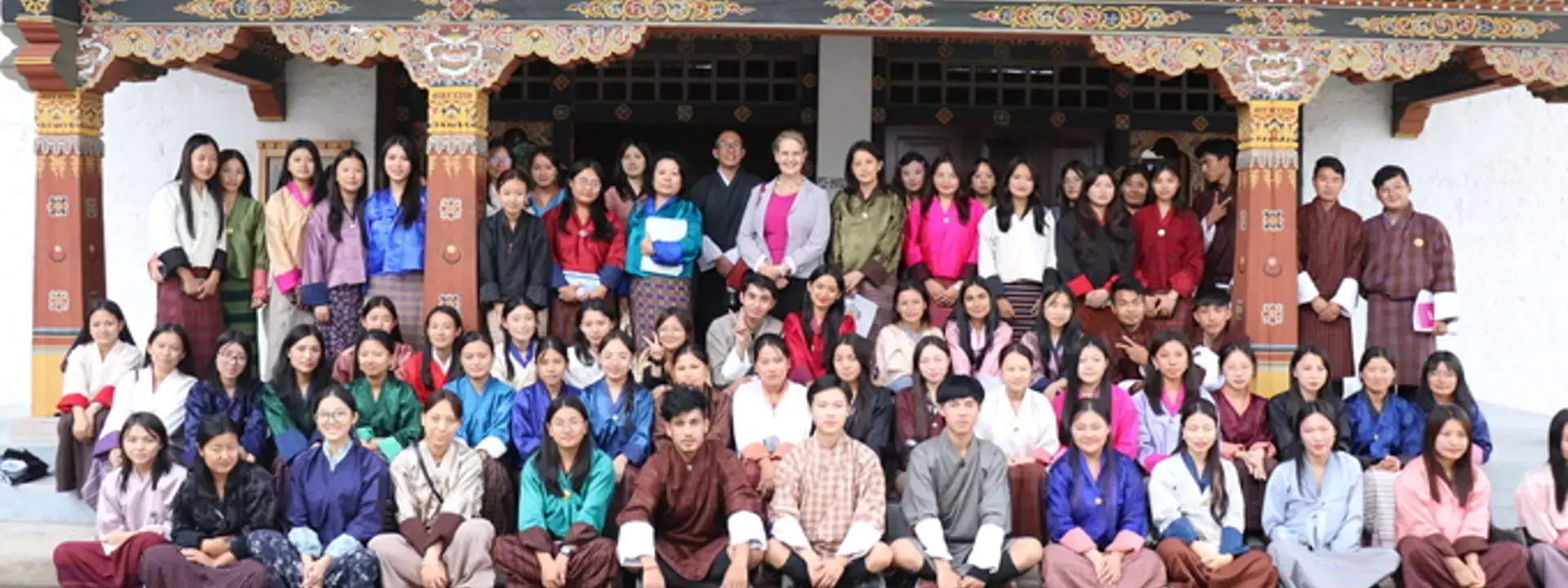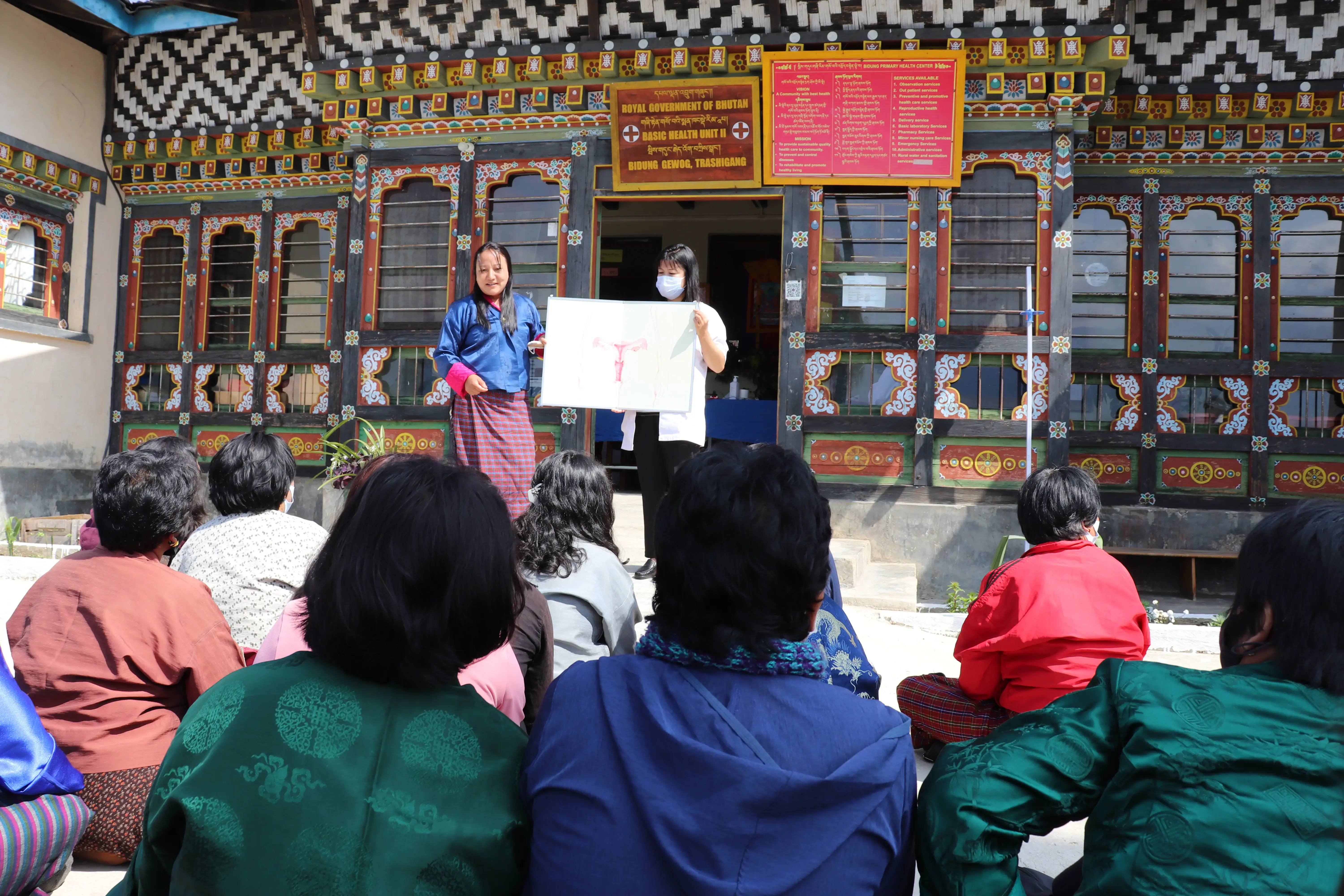Today’s adolescents and youth are 1.8 billion strong and one quarter of the world’s population. They are shaping social and economic development, challenging social norms and values, and building the foundation of the world’s future. UNFPA is committed towards realizing the full potential of adolescents and youth by facilitating their access to sexual and reproductive health services, and ensuring the realization of their rights.
Bhutan has a small but youthful population, estimated at 763,249, with more than 41% of the population below the age of 25 years, of whom more than 42% are adolescents, presenting potential to reap a demographic dividend. However, this also brings about challenges associated with high youth unemployment, increasing out-migration of young skilled citizens, gender inequality, adolescent pregnancy and other social, health and development issues. UNFPA ensures adolescents and young people remain a priority in Bhutan, advocating for adequate support and investments in their health, education, skills building and overall development, so they become powerful drivers of change.
UNFPA is strategically collaborating with the Government, non-governmental organizations, youth groups and other United Nations organizations through technical support, capacity-building and advocacy to:
Towards realizing full potential of young people
UNFPA is strategically collaborating with the Government, non-governmental organizations, youth groups and other United Nations organizations through technical support, capacity-building and advocacy in following areas:
- Strengthening national capacities to institutionalize and deliver age -appropriate and gender-transformative CSE aligned to international guidelines in schools and monastic institutions through in person and digital modalities.
- Strengthening the capacity of youth organizations, networks and communities to deliver out-of-school CSE in remote areas and vulnerable populations of young people.
- Taking a health systems approach to strengthen adolescent and youth-responsive sexual and reproductive health information and services to young people with disabilities and diverse sexual orientation and gender identity/expression (SOGIE).
- Supporting youth-led initiatives and networks and promoting mechanisms and platforms to strengthen their participation, especially young women and those with disabilities and diverse SOGIE, in policy and planning processes and decision-making mechanisms that affect their development and well-being including in the disaster risk reduction, climate action and resilience building efforts.




